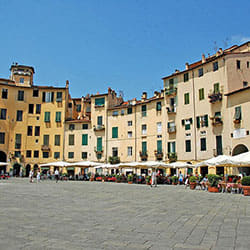- 2021.01.21
- A dialect to be saved, a wish for the future
This year with the Covid-19 situation, many people started working from home and in Italy they called it ‘smart-working’ although technically in English it is called remote working. We had many calls, yes calls not chiamate (in Italian), meetings not riunioni and so on…the use of English words – especially in Business – is becoming more and more frequent.
A few years ago, the Italian Government together with the Academy of Italian Literature promoted a movement to save as many words as possible from the Italian language and avoid lexical poverty, a movement to promote politically correct language, avoiding linguistic technocracy and furtive foreignisms.
I remember from my childhood many words, idioms, dialectal proverbs that now risk falling into extinction. Because dialectal idioms are something more than simple grammatical rules each word is the result of a long historical process of describing the meaning and significance of things, actions and feelings. Some words can be lost in common use or adapted to the new socio-cultural context in which neologisms or Americanisms prevail, some terms of information technology that didn’t exist in the past for instance such as blog or chat or other words that apparently simplify the language but impoverish it at the same time. The dialect has distant roots and is lost in the mists of time but it always expresses the best of wisdom and popular culture through words that are sometimes lost, forgotten, on the verge of extinction, because almost no one uses them.
The dialectal words are a big part of our cultural tradition and part of the identity of our roots and what remains of the path we have traveled. Sometimes their fading into common language is linked to the slow decline of customs and traditions that no longer fit into our daily life. Other times they become obsolete because they seem old and archaic, but words tell us our story, who we are, where we come from, how we once lived: lifestyles, values, proverbs.
Therefore, I have compiled a list of words and then idioms in Genoese dialect with the translation in Italian and English.
I have heard that they are typical and it is a good way to show you how the dialect differs from the Italian language even with the presence of accents that are not present in Italian.
Zena = Genova = Genoa
Mâ = mare = sea
Caréga = sedia = chair
Palanca = soldi = money
Ciassa = Piazza = square
Figêu = bambino = child
Nu ghe semmu = Non ci siamo = We are not there literally or used in the meaning “we are not doing well”
Voeise ben nö costa ninte = Amare te stesso non costa nulla = Loving yourself costs nothing
Chi no sappa no lappa. = Chi non zappa non mangia. = Those who do not work do not eat.
Chi attasa o menestron na votta, o no va ciù da Zena = Chi assaggia il minestrone una volta non va più via da Genova = Those who taste soup in Genoa do not leave the city anymore






























































